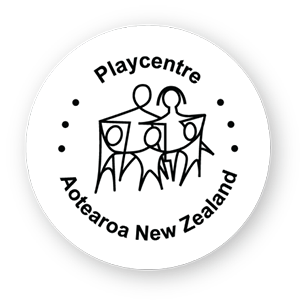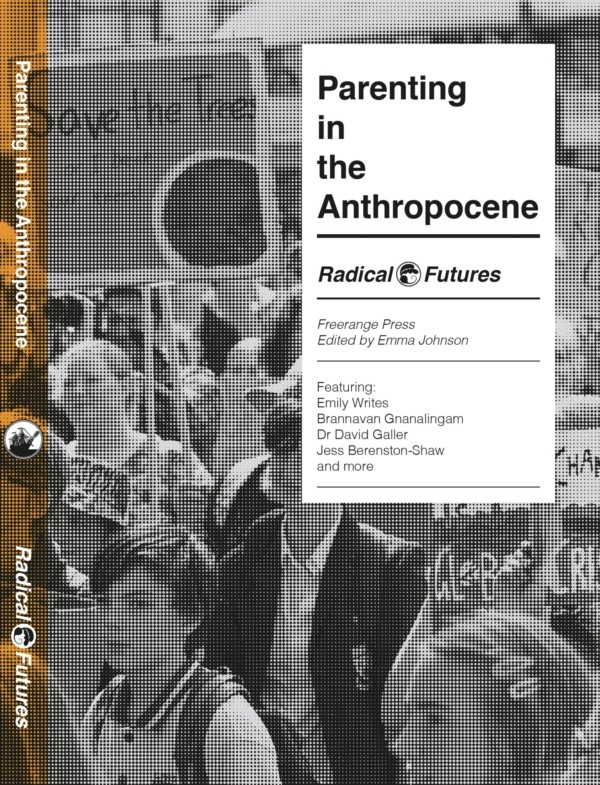Book review – Parenting in the Anthropocene
Part of the Radical Futures series
Edited by Emma Johnson
Freerange Press
I began reading Parenting in the Anthropocene when Aotearoa was thrown back into Alert Level 4. It was a little surreal reading about the acknowledgements of Covid-19 scattered throughout the book whilst we were thrust back into the unknown, this time battling a scarier Delta variant. But I soon settled into the flow, reading a chapter a day and giving myself time in between to digest and process what each author was saying.
I laugh-cried reading Emily Writes, reflecting on my own journey. The sleeping, eating and toileting. The I’m not-good-enough, I-can’t-afford-everything and this-is-really-hard-work worries and realisations. But we are enough, our love and our best is what nourishes their souls.
I questioned what stories my tamariki will grow up with after reading Jess Berentson-Shaw’s excerpt. Pondered the beliefs I wanted them to hold, how they’d view problems and choose which actions should be taken. I contemplated how my own views are shaped by the stories of my upbringing.
Mia Sutherland made me reflect on our consumer culture. It felt especially relevant as I scoured the internet for what shops were shipping ‘essential items’ and just what constituted essential. I worried that both my children would have lockdown birthdays, relieved for past me who had shopped ahead. Yet as the days dragged on more and more of those presents seemed to make early appearances. The duplo, the paint, the books. Were they needed? Did they need to be replaced? When my children are grown will they reflect on their birthdays with warmth or will they scold me for consumerism? I comforted myself remembering that nearly all of their baby toys had gone through two families before reaching us, and were now being passed on to friends.
I felt confronted at Briohny Doyle’s take on childlessness. Purely because all I’d ever wanted was to have children, I couldn’t imagine a life where I didn’t. But it made me think about others, about the potential pressures they feel. I’m a firm believer in living how you want, and know many people with children, expecting children, struggling to conceive, and those who don’t think they ever will. I reflected hard on my own upbringing, my own desires and how I’d feel if my two daughters chose not to have their own babies.
Leonie Pihama beautifully articulated the importance of tamariki in Māori culture, and really made me reflect on my own upbringing, schooling and how my values were shaped by these. Perhaps I would have been a different person, and the world a different place if we’d been more integrated with Māori values and culture at an earlier age. How do I want this to be different for my own children? How can I help be the change?
Each essay blended beautifully into the next. Starting with being a mother, to equity in the first 1000 days. The importance of stories and how they shape us, to considering the future we are creating, the effect we’re having on the climate and how that will impact those who follow us. Choosing childlessness, struggling to conceive and how it can be unfairly biased towards those with ‘traditional’ lifestyles. Onto considering tamariki māori, ‘kindness’ and how it relates to our children and government. How to educate children with a ‘future mindset’ and prepare them for jobs that haven’t even been thought of yet.
These are the voices of where we are right now. They force us to question our past, our knowledge, our thoughts and feelings. This reflection shapes the sort of parents (or not) that we become, it clarifies our beliefs and cements the world we aspire to leave behind for the next generations. Just what that world post Covid-19 looks like is still in question.
Review by Jessamine Leggett
_____________________________________________________________
I had no idea what Parenting in the Anthropocene was about when I offered to review it, but I’d heard of some of the featured writers, and I love to read so I happily volunteered. Before reading, I needed to find out what Anthropocene meant. Turns out, it is to do with the time in which we live- where human activity has been the dominant influence on climate and the environment. This book is about how we parent in this time- A time, where most of us have never had so many choices in how we live, and the impact of the choices we make. Parenting in the Anthropocene contains reflections on those choices and the impact they have on our children, on the environment, and on society. I started reading this book in Level 4 lockdown- a time when how our actions directly impact one another was brought sharply into focus.
The book’s structure is a collection of essays written by New Zealanders. Highlights for me were the essays of Emily Writes, Leonie Pihama (Te Ātiawa, Waikato, Ngā Māhanga a Tairi), and Brannavan Gnanalingam.
Emily writes opens the book with a moving essay on motherhood- how we see our children and see one another, and how we see one another because of our children.
Leonie Pihama writes on the importance of collective care for ensuring whanau wellbeing- The importance of children within Māori society as both a gift of the present and for the future, and the gifts of elders both living and passed on for revitalising Te Reo and Tikanga Māori.
Brannavan Gnanalingam’s essay is about what it means to teach our children to be kind- something that I hope all of us would like our children to be. In doing so, we’re reminded that many of the structures our society is built upon are not kind and perhaps we need to be demanding as much from our leaders as we from our children.
A beautiful addition to the end of book is the list of recommended books for challenging times for pre-schoolers, primary, and intermediate age children as well as parents put together by Terrisa Goldsmith and Jane Keenan from Christchurch City Libraries.
This is not a parenting book, but it is a book for parents. If you are someone who thinks deeply about your place in the world and how you want to leave it for your children, then this is a book you might enjoy.
Review by Ruth Brehaut
_____________________________________________________________________________





